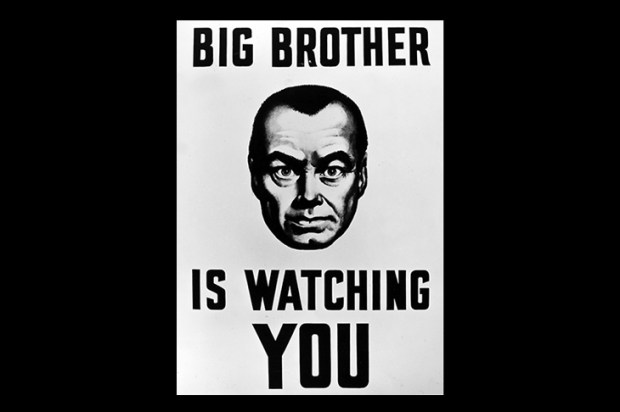Schizophrenia is the psychiatric illness about which the most misconceptions abound. It’s not so much the ‘negative’ symptoms that cause misunderstanding, devastating as they are — social withdrawal, self-neglect, flattening of mood — but the auditory hallucinations and delusions, often of a paranoid nature, that can accompany it.
Nathan Filer, a psychiatric nurse, wrote the best novel I’ve read about schizophrenia, the Costa-winning The Shock of the Fall. The Heartland, his non-fiction book on the subject, is easily as good.
Perhaps it’s the foreign nature of their experiences that gives rise to the myth that schizophrenics are dangerous. In fact they are inclined to harm themselves rather than others, and, as Filer points out, 14 times more likely to be the victims of serious crime than its perpetrators.
He takes nothing for granted, analysing all the assumptions. He uses inverted commas for ‘schizophrenia’, because diagnoses vary between countries and even between clinicians. This is no disrespect to the latter, but simply a reflection of the complexity of the illness. And yet Filer’s sharp intellect never replaces empathy. He discusses theories about aetiology, treatment and prognosis with experts all over the world, while looking at the science and what causes the symptoms. For example, excessive dopamine — thought to be one of the factors involved in the condition — predisposes you to auditory hallucinations and delusions because it increases alertness to harmless stimuli, leading to an erroneous interpretation of them as threats. R.D. Laing described schizophrenia as ‘a special strategy that a person invents to live in an unlivable situation’.
Most importantly, Filer speaks with understanding and sensitivity to individual sufferers. He begins his book by describing, from the point of view of the ‘patient’, the forcible injection of a calm but deluded schizophrenic man who refuses anti-psychotic medication.Most clinicians will have administered medications to agitated patients against their will, but considering the case of a tranquil patient raises important philosophical questions — especially when those medications cause dreadful side effects, such as involuntary facial movements, as well as sedation and emotional flatness.
And yet Filer is no anti-medication activist, acknowledging that drugs are usually required. His view is wholly balanced. He examines the environmental and genetic factors known to predispose people to schizophrenia and points out the hypocrisy of governments that call for less ‘stigma’ to be attached to it. Prejudice is not reduced by ‘othering’ the ill while at the same time reducing community support and increasing homelessness and poverty.
Filer looks at new therapies that can be added to existing ones, helping patients to manage the anxiety caused by delusions. One study showed that these not only reduced the distress, but also the belief in the delusion itself.
Esmé Weijun Wang, a high-achieving American, was diagnosed with bipolar disorder as a child, though the diagnosis was later altered to schizoaffective disorder (schizophrenia with serious mood disturbance) when she reached adulthood. Her account of the illness begins with reeled-off acronyms and medical jargon (‘the diathesis-stress model’, ‘avolition’), but this is soon revealed to be a defence mechanism: Wang’s self-esteem has always been tied up with her academic achievements.
Her story is devastating. She won a place at Yale but had to take a year out because of her illness. She thought she would return, but Yale had other ideas. Wang understands the burden placed on universities that admit patients suffering from intermittent psychosis while lacking adequate means to care for them, but it obviously still rankles that she was unable to graduate.
She is wise and eloquent on society’s misuse of the term ‘schizophrenic’, and heart-rendingly honest on the effects of the illness, which include brain shrinkage in the long term. At one point she declares that her intellect is her most valuable asset, and candidly adds: ‘It’s quite disconcerting to be told that your brain is being damaged.’
I warmed to this clever, determined woman. But my heart sank when I read of her paying for mystic and occult nonsense, for visits abroad to pray, and for ‘treatment’ for purported chronic Lyme Disease, despite not meeting any of the diagnostic criteria. Holistic care is vital in schizophrenia, involving medication, cognitive behavioural therapy, community and family support, and education. But some of our most vulnerable end up spending their life-savings on exploitative ‘cures’ that at best provide only a placebo effect. That is a tragedy in itself.
The Heartland: Finding and Losing Schizophrenia
Author: Nathan Filer
Publisher: Faber
Page count: 246
Price: £14.99
The Collected Schizophrenias
Author: Esmé Weijun Wang
Publisher: Penguin
Page count: 201
Price: £9.99
Got something to add? Join the discussion and comment below.
Get 10 issues for just $10
Subscribe to The Spectator Australia today for the next 10 magazine issues, plus full online access, for just $10.
You might disagree with half of it, but you’ll enjoy reading all of it. Try your first month for free, then just $2 a week for the remainder of your first year.














Comments
Don't miss out
Join the conversation with other Spectator Australia readers. Subscribe to leave a comment.
SUBSCRIBEAlready a subscriber? Log in